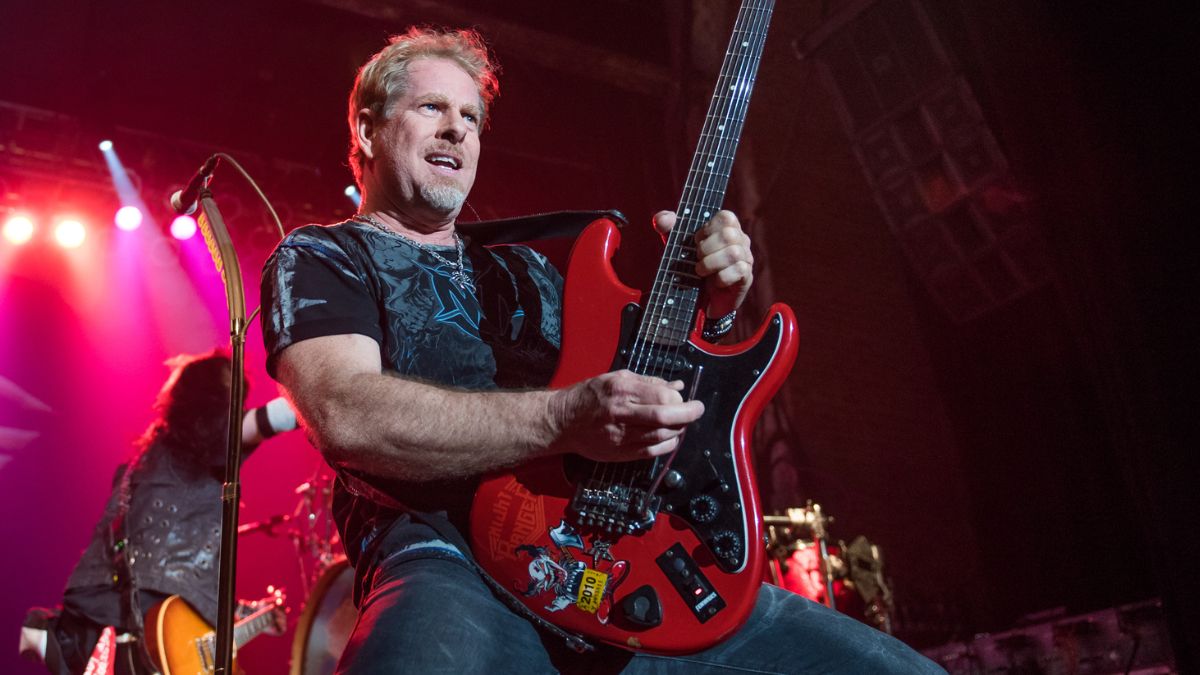“Guitar solos got so crazy and had too many notes!” Former Ozzy Osbourne guitarist Brad Gillis says rock needed grunge after the “prissy 1980s"
The arrival of Nirvana and company completely changed the guitar landscape. Brad Gillis thinks it was a welcome shake-up

All the latest guitar news, interviews, lessons, reviews, deals and more, direct to your inbox!
You are now subscribed
Your newsletter sign-up was successful
Trends in music come and go, and former Ozzy Osbourne guitarist Brad Gillis believes that the electric guitar needed grunge music to shake up the scene.
The Honolulu-born guitarist was drafted into the Prince of Darkness' band in the wake of Randy Rhoads' passing. Rudy Sarzo says Ozzy Osbourne would have died if they hadn’t carried on quickly after Rhoads' death.
His brief stint in the band is immortalized on the 1982 live album, “Speak of the Devil”, and he built on the platform with Night Ranger throughout the rest of the decade. As the ‘90s dawned, he felt that a decade littered with power ballads needed to end.
“It was a whole new ball game,” he tells 101 WRIF. “A lot of it was kind of downer music, [but] it got a little too prissy with '80s rock n' roll. [There were] too many love songs back in the '80s.”
In particular, Gillis was drawn to the gritted heaviness of the grunge movement – spearheaded by Nirvana, Soundgarden, and Alice In Chains.
“I grasped a lot of these new bands, and I was into them because it was a whole new style of music,” he says. “As it progressed in the '90s, things got a lot better, I felt.”
The legacy of those bands, and Nirvana especially, cannot be overstated. The two most expensive guitars to have ever sold at auction were Kurt Cobain’s. The pair outsold David Gilmour’s Black Strat, John Lennon's Help! 12-string Framus Hootenanny, and plenty more big hitters beyond it. Those bands reflected a whole new generation.
All the latest guitar news, interviews, lessons, reviews, deals and more, direct to your inbox!
For those married to the ‘80s shred scene, grunge bands were often sneered at for their simplistic soloing styles. Joe Satriani recently came to Cobain’s defence in that regard, calling him a “great guitar player,” and Gillis has echoed those sentiments, stressing the need for change.
“When that happened, any rock n' roll musician was wondering, ‘What's going to happen with good old rock n' roll?’ And things kind of died,” he reflects. “I think guitar solos got to a point that they were just so crazy and [had] too many notes, that backing it down to simplify the new styles and sound with the Nirvanas, really just kind of set up a new regime. And then we just noticed little by little rock n' roll coming back into fashion.”
Gillis echoes similar comments by session legend Tim Pierce, who said that Kurt Cobain's arrival on the scene helped him become the “perfect studio musician,” by skewing the music landscape. Guitar pyrotechnics were out.
Gillis has also looked back on the moment the Ozzy gig began to feel real.

“I was up really late on a Saturday night with a... ‘new friend.’ and I get this call at seven in the morning,” he says. “‘Hello Bradley, this is Sharon Osbourne, Ozzy's manager. We'd like to fly you to New York for an audition.’ I thought someone was screwing with me. I didn't believe this would ever even happen.”
Sharon then passed the phone to Ozzy to convince him this wasn't a hoax, and the singer had said, “I'd like you to grab a pen and paper and write these songs down.”
“I started shaking,” Gillis remembers, “I was thinking this could be real! I had to learn 19 songs. When I flew to New York, I was given two live cassettes from a few months earlier.”
The cassettes had mixes taken directly from the soundboard, so that Gillis could “hear Randy clearly.
“Sharon set me up with a boom box, and an amplifier, and I'd sit in my room all day and learn by ear,” he adds.
The guitarist would hold down the fort in the band until Jake E. Lee was chosen as Ozzy’s second full-time guitarist, and 37 years after he left the band, the pair mended their relationship at the Back To The Beginning concert. Lee went on to reveal the final words Ozzy ever said to him during a touching tribute.
A freelance writer with a penchant for music that gets weird, Phil is a regular contributor to Prog, Guitar World, and Total Guitar magazines and is especially keen on shining a light on unknown artists. Outside of the journalism realm, you can find him writing angular riffs in progressive metal band, Prognosis, in which he slings an 8-string Strandberg Boden Original, churning that low string through a variety of tunings. He's also a published author and is currently penning his debut novel which chucks fantasy, mythology and humanity into a great big melting pot.

![Ozzy Osbourne (Irvine Meadows 1982) [02]. Mr. Crowley - YouTube](https://img.youtube.com/vi/bjQaPMrLmZc/maxresdefault.jpg)

